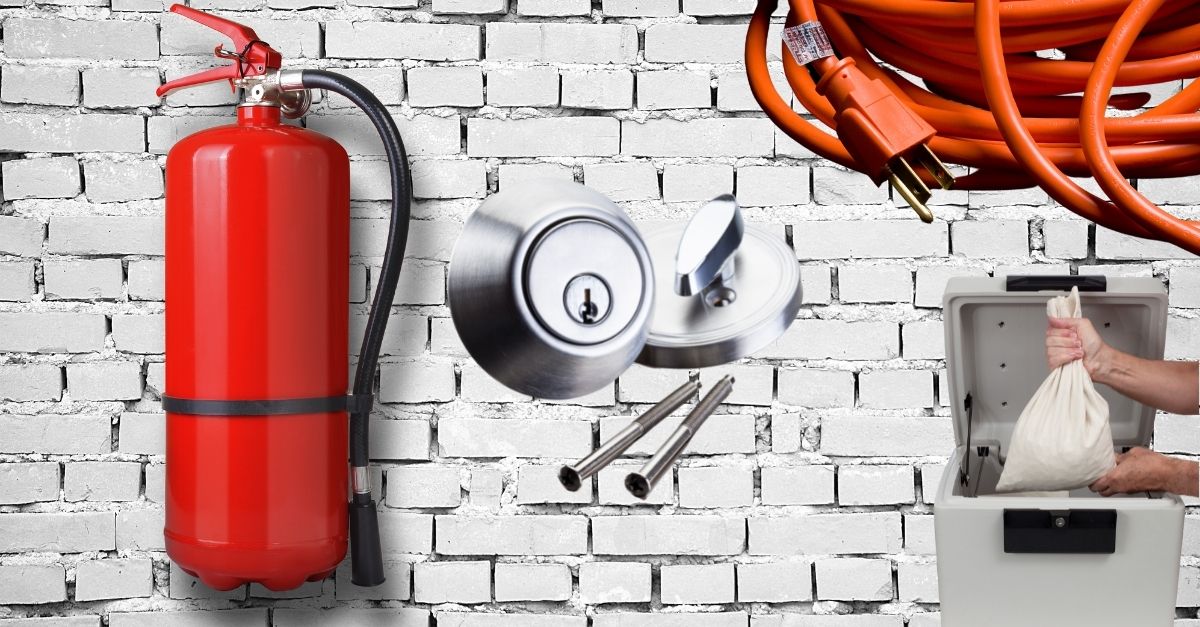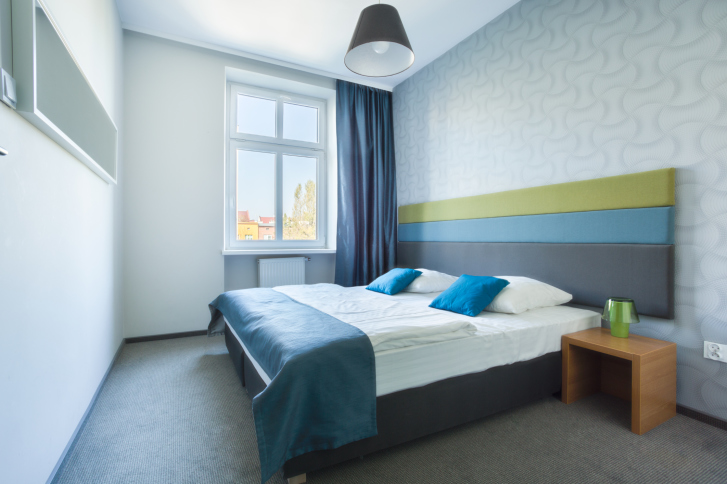Top 8 Things New Homeowners Need
 Moving into your first home is an exciting experience, but it can also be overwhelming. To manage the move properly, you need a wide variety of tools you may never have considered before. You may not realize you should have purchased a certain item until you need it.
Moving into your first home is an exciting experience, but it can also be overwhelming. To manage the move properly, you need a wide variety of tools you may never have considered before. You may not realize you should have purchased a certain item until you need it.
To prepare for the move into your new home, make sure you have all of the items listed below.
Storage For Documents
As a homeowner, you will need to keep and organize a variety of documents, including receipts, warranties and even your mortgage papers. Consider buying a fireproof box or cabinet to store these items.
Fire Extinguisher
Every homeowner should have at least one fire extinguisher on hand. Make sure your fire extinguisher is stored in a location that can be accessed easily in the event of a fire.
Extension Cords
Extension cords can be useful in a variety of situations, from plugging in appliances that are too far from an outlet to decorating your home for the holidays. Be sure to buy multiple cords in different lengths so you can use them for different purposes.
Smoke Alarms
If your home is not already equipped with working smoke alarms, you need to purchase and install them as soon as possible. Be sure that you check your alarms every four months and change the batteries as needed.
Cleaning Supplies
Another important purchase for every new homeowner is cleaning supplies. While some of these supplies may be used on a daily basis, others may be used less frequently. Nonetheless, it is a smart to have all of these items on hand. Examples of cleaning supplies you may need include window cleaner, toilet brushes, brooms, mops, sponges and paper towels. If you have carpet in your new home, you may need to buy a vacuum cleaner as well
A Basic Tool Kit
Every new homeowner will need some basic tools. Purchasing these tools in advance will make both small and large tasks easier. Be sure your toolkit includes a utility knife, flashlight, measuring tape, screwdrivers, wrenches and hammers. Having some different kinds of tape on hand is also a wise idea.
Exterior Door Locks
When moving into a new home, it is always a good idea to change the locks. Although the previous owner is asked to turn over all the keys to the home, it is impossible to know whether other keys exist. Buying your own door locks will protect against break-ins and give you peace of mind.
Lawn Equipment
If you will be responsible for maintaining your own lawn and landscaping, you will need to invest in the proper lawn maintenance equipment. Examples of items you may need include snow shovels, sprinklers, rakes, shears, shovels and water hoses. You may also need a lawnmower.
You may still need to make additional purchases after you have everything on this list. However, this list covers many of the basic things you will need to begin life successfully in your new home.

 This past year has been stressful for everyone involved. A lot of people have had to spend more time in their house than they ever have in the past. When this is combined with trying to conduct work and school from home, it is easy to see why people are so eager to get out of their house.
This past year has been stressful for everyone involved. A lot of people have had to spend more time in their house than they ever have in the past. When this is combined with trying to conduct work and school from home, it is easy to see why people are so eager to get out of their house.  Finding the perfect property is an exciting feeling, but its relative location can leave a lot of room for worry. Buying a home in the city is a venture that comes with an entire assortment of advantages and disadvantages. While the location might be close in proximity to businesses, services, and other people, it’s easy to worry about the other aspects of city living. What are the great and not-so-great facets of living on a busy street?
Finding the perfect property is an exciting feeling, but its relative location can leave a lot of room for worry. Buying a home in the city is a venture that comes with an entire assortment of advantages and disadvantages. While the location might be close in proximity to businesses, services, and other people, it’s easy to worry about the other aspects of city living. What are the great and not-so-great facets of living on a busy street? If you’re moving from a large home into a smaller house or condo, you’re probably looking forward to enjoying a lower utility bill and not having to do as much cleaning. But before you move, you’ll want to take certain precautions to ensure that you’re not overwhelmed.
If you’re moving from a large home into a smaller house or condo, you’re probably looking forward to enjoying a lower utility bill and not having to do as much cleaning. But before you move, you’ll want to take certain precautions to ensure that you’re not overwhelmed. Once you’ve accepted an offer on your house, the next thing you should do is schedule a moving company. The earlier you plan for the moving company, the more time you’ll have to research your options and ensure that you can reserve the date you need.
Once you’ve accepted an offer on your house, the next thing you should do is schedule a moving company. The earlier you plan for the moving company, the more time you’ll have to research your options and ensure that you can reserve the date you need.